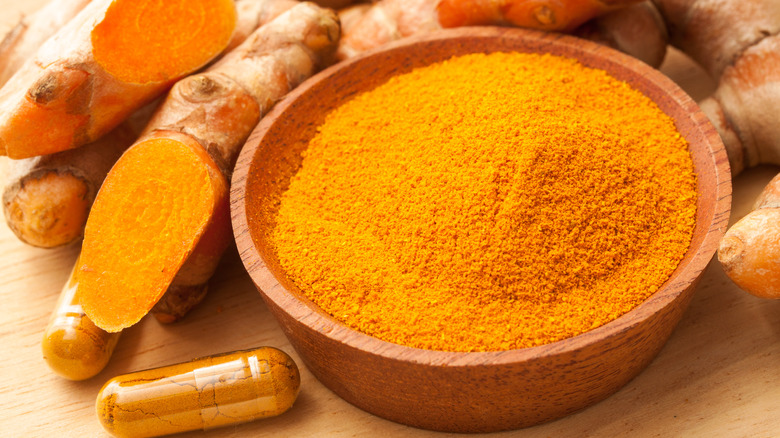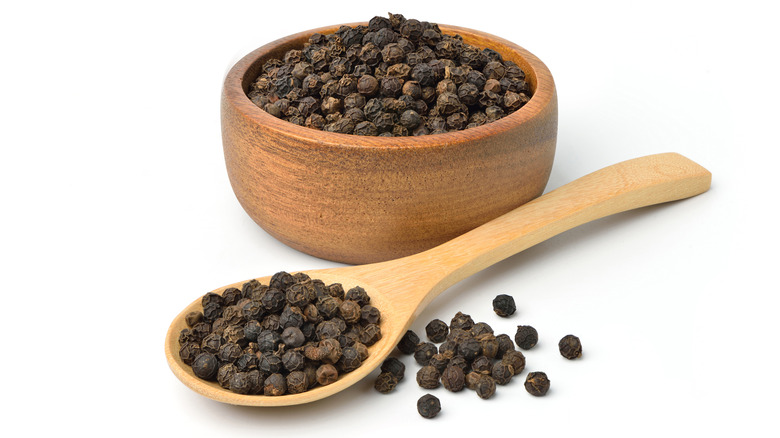The Big Mistake You're Probably Making With Turmeric
Any fan of Indian-Asian cuisine is no stranger to the potent color and flavor associated with the spice turmeric. Turmeric has been used for centuries in both traditional Chinese and Ayurvedic medicine for its proposed anti-inflammatory and antioxidant properties, amongst others. Its main ingredient, curcumin, is responsible for most of these beneficial health properties, and studies over the years have favored the use of turmeric for various conditions including osteoarthritis and other forms of inflammatory arthritis and diseases, in addition to modern medicine (via Healthline).
Many people looking to reap the benefits of turmeric turn to over-the-counter supplements. While supplements are not necessarily a bad option, most medical and nutritional providers favor whole foods over vitamins or supplements. According to the Mayo Clinic, consuming whole foods instead of taking supplement and vitamin versions, none of which are regulated or approved by the U.S. Food and Drug Administration, boasts three main benefits.
Overall, whole foods provide more essential fiber, greater nutritional value, and often contain more valuable chemical compounds such as antioxidants. So if you have a choice between incorporating turmeric into your diet or taking a supplement, start jazzing up the flavors in your food for more health benefits.
Black pepper will help increase turmeric absorption
Whether turmeric is consumed through supplements or naturally through food, curcumin on its own is not easily absorbed within the body (via Healthline). This means that no matter how much turmeric a person consumes, if they are not consuming it properly, they will not receive the potential benefits, something that is understandably frustrating when seeking relief from joint pains or chronic inflammation. It has been recommended to consume turmeric along with black pepper. This is because black pepper contains piperine, a substance which increased the absorption of curcumin by an astounding 2000% (via Planta Medica). If cooking with turmeric and black pepper is not palatable, there are several supplements on the market which combine the two, making them more effective than turmeric supplements alone.
In addition to reducing inflammation, turmeric has also been proven to play a role in reducing the risk of heart disease, aiding in the management of depressive symptoms, slowing the progression of Alzheimer's disease, and potentially delaying aging due to its anti-oxidant properties. When taken in conjunction with an anti-inflammatory diet, turmeric can really help improve ones' overall health. As with starting any new supplement or dietary change, be sure to speak with your healthcare provider first.


